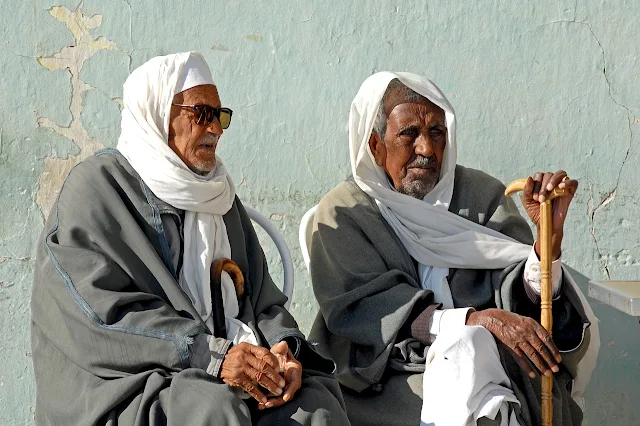
Tunisia is a small country in North Africa, but it has a rich and diverse history and culture.
Tunisians are the citizens and nationals of Tunisia, who speak Tunisian Arabic and share a common Tunisian identity.
In this article, we will explore some of the personality traits that characterize Tunisians, based on various sources of information.
{tocify} $title={Table of Contents}
Introverted and Intuitive
According to a personality profile by 16Personalities, respondents from Tunisia are slightly more introverted than extroverted (+2.49%) and significantly more intuitive than observant (+21.39%).
Tunisians tend to be more reserved, quiet, and thoughtful than outgoing, talkative, and spontaneous.
They also prefer to focus on abstract ideas, possibilities, and meanings rather than concrete facts, details, and realities.
Feeling and Prospecting
The same personality profile also shows that respondents from Tunisia are slightly more feeling than thinking (+2.18%) and more prospecting than judging (+9.36%).
This implies that Tunisians tend to make decisions based on their emotions, values, and personal circumstances rather than logic, principles, and impersonal criteria.
They also prefer to keep their options open, adapt to changing situations, and explore new opportunities rather than plan ahead, follow routines, and stick to deadlines.
Turbulent and Diplomatic
Another trait distinguishing respondents from Tunisia is that they are more turbulent than assertive (+5.84%).
This indicates that Tunisians are more prone to experience stress, self-doubt, and emotional fluctuations than confidence, calmness, and emotional stability.
They also seek improvement, growth, and feedback rather than satisfaction, achievement, and recognition.
Moreover, the most common personality roles among respondents from Tunisia are diplomats (42.85%), followed by analysts (33.06%), sentinels (12.82%), and explorers (11.26%).
This suggests that Tunisians are mainly oriented towards cooperation, harmony, empathy, and creativity rather than logic, efficiency, structure, and curiosity.
Liberal and Tolerant
In general, though Tunisians consider themselves to be more liberal and tolerant than their neighbors—most urban women, for example, dress in Western clothes and do not veil themselves, and (though it is considered inappropriate by some Tunisian Muslims) locally made wines and spirits are consumed—they still maintain a strong Islamic identity.
Tunisia is also known for its progressive social reforms, such as granting women equal rights in marriage and divorce, abolishing polygamy, banning female genital mutilation, legalizing abortion, and criminalizing domestic violence.
Successful and Inspiring
Tunisia boasts an impressive list of successful women who are pushing the boundaries of what it means to be an Arab woman in this day and age.
Some examples are:
- Hend Sabry: An award-winning actress who starred in several films and TV shows across the Arab world and beyond. She is also a lawyer, a humanitarian activist, and a goodwill ambassador for the World Food Programme.
- Ines Boubakri: A fencer who won the bronze medal at the 2016 Rio Olympics, becoming the first African woman to win an Olympic medal in fencing. She is also a PhD student in sports sociology at the Sorbonne University in Paris.
- Emel Mathlouthi: A singer-songwriter who became famous for her song "Kelmti Horra" (My Word is Free), which was adopted as an anthem of the 2011 Tunisian Revolution. She is also known for her fusion of traditional Arabic music with electronic sounds and her outspoken views on social issues.
These are just some of the personality traits that define Tunisians.
Of course, not all Tunisians share the same characteristics or opinions, as Tunisia is a diverse and complex country with many influences and perspectives.
However, these traits can give us some insight into the culture and identity of this fascinating nation.
Would you like to know other characteristics of Tunisian people?
Please read these articles as well.

Post a Comment